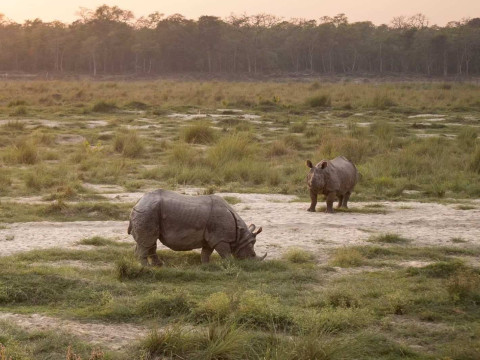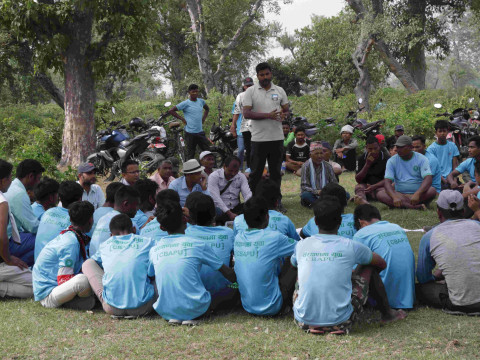Overview
Nepal is projected to add over 18,000 km of new roads by 2050, which is a 42% increase from the current road length. These new roads can have devastating consequences, such as habitat fragmentation and increased human disturbance, on the gradually recovering population of Bengal tigers (Panthera tigris tigris) in the Nepal Terai Arc Landscape. Responding to this challenge requires extensive field research on tiger interactions with road infrastructure to inform Smart Road Planning Strategies that safeguard wildlife for the long-term future. This research will therefore help reduce tiger habitat loss and mortality due to planned and ongoing road development.
Project objectives
- The goal of this project is to reduce habitat fragmentation caused by linear infrastructures for long-term tiger survival through detailed knowledge of tiger movement, space use and behavior in response to road infrastructure. We will achieve this goal through two objectives:
- Generate scientific knowledge on effects of roads on tigers and other wildlife of Nepal in order to develop effective road mitigation strategies at policy level
- Facilitate policy dialogue to construct wildlife-friendly infrastructures using best available data
Expected outputs
- Scientific articles and reports detailing tiger behavior, energy use, and activities
- Maps of habitat quality, road crossings, and corridor locations
- Recommendations and protocols for road mitigation for the future
- A cohort of technicians, biologists, and managers trained in the most advanced field and research methods
Project partners
National Trust for Nature Conservation (NTNC), International Union for Conservation of Nature (IUCN-Nepal), University of Michigan (UM), and Department of National Parks and Wildlife Conservation (DNPWC)
Project duration
October 2021 to September 2024
Project budget
$ 327,490 ($201,205 USFWS, $86,195 NTNC, $29,620 UM, $10,470 IUCN-Nepal)
Principal Investigator: Dr. Naresh Subedi, Conservation Program Director, NTNC
(nareshsubedi@gmail.com, 9855056934
The project is funded by the Rhinoceros and Tiger Conservation Fund of the United States Fish and Wildlife Service (USFWS).








